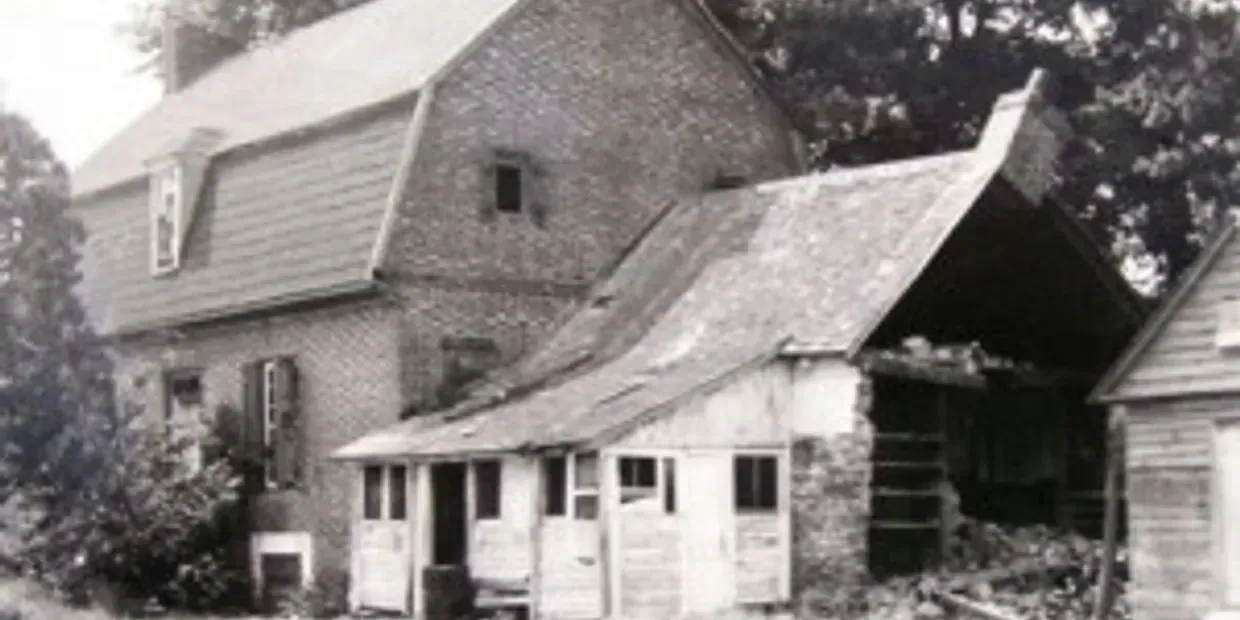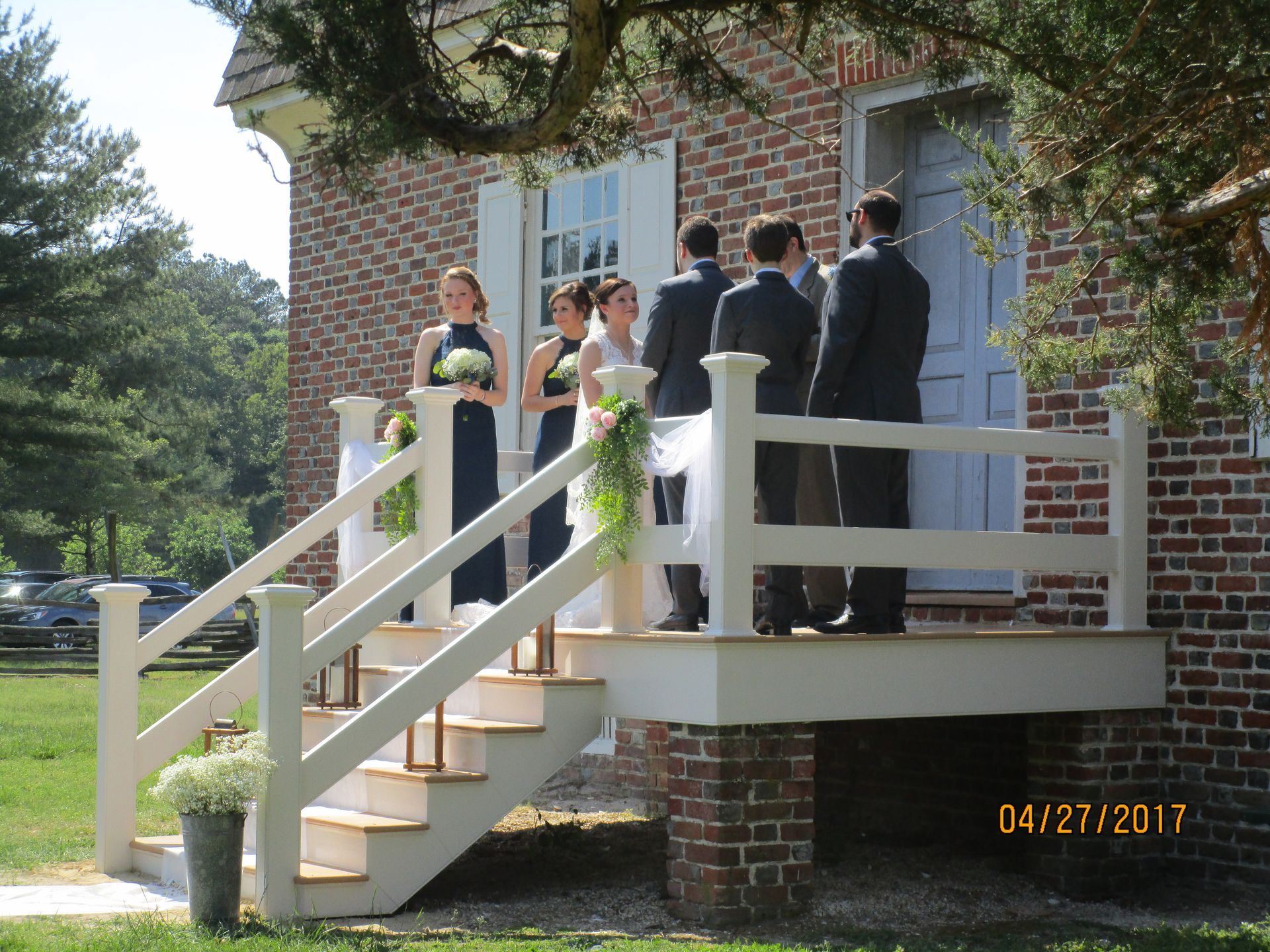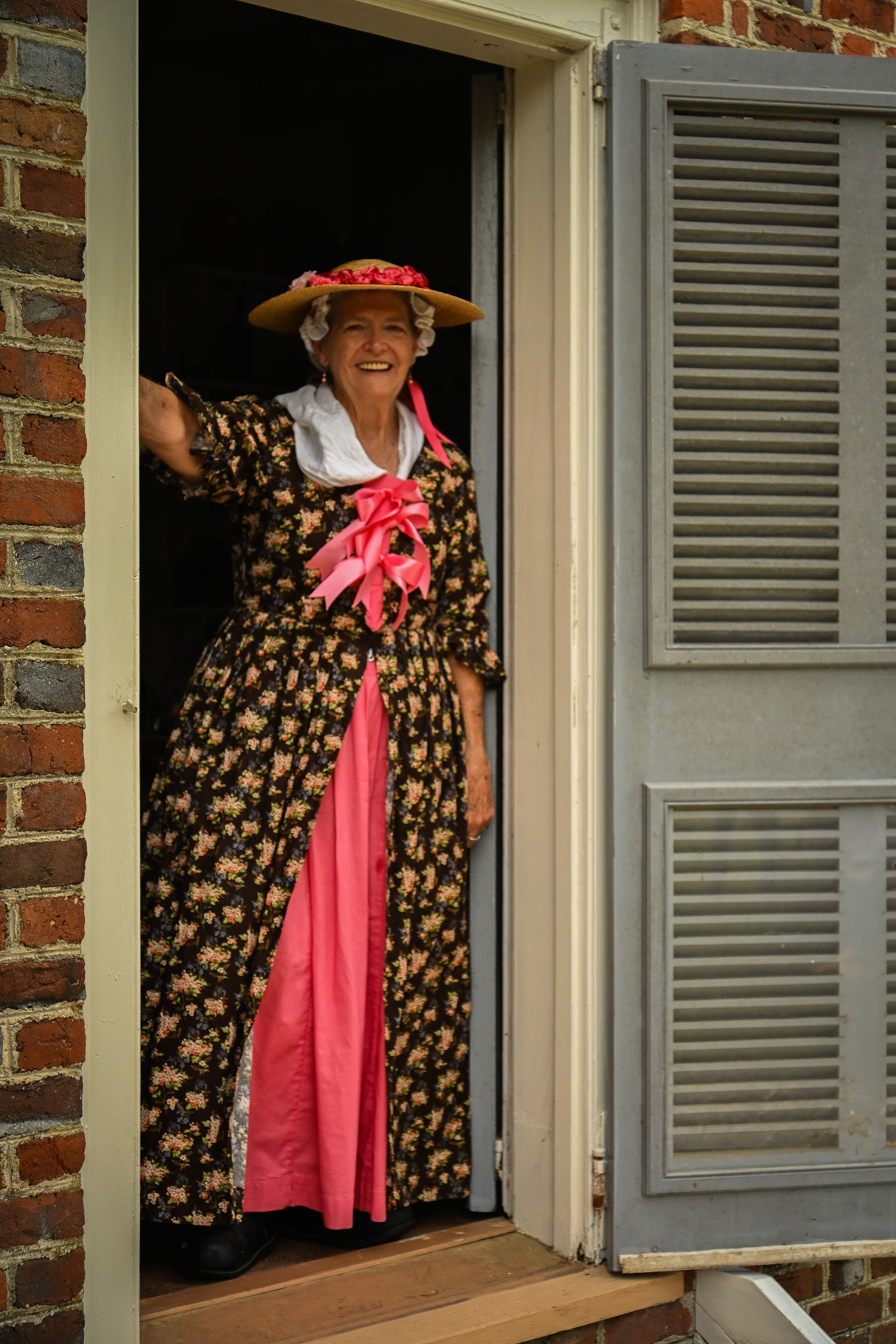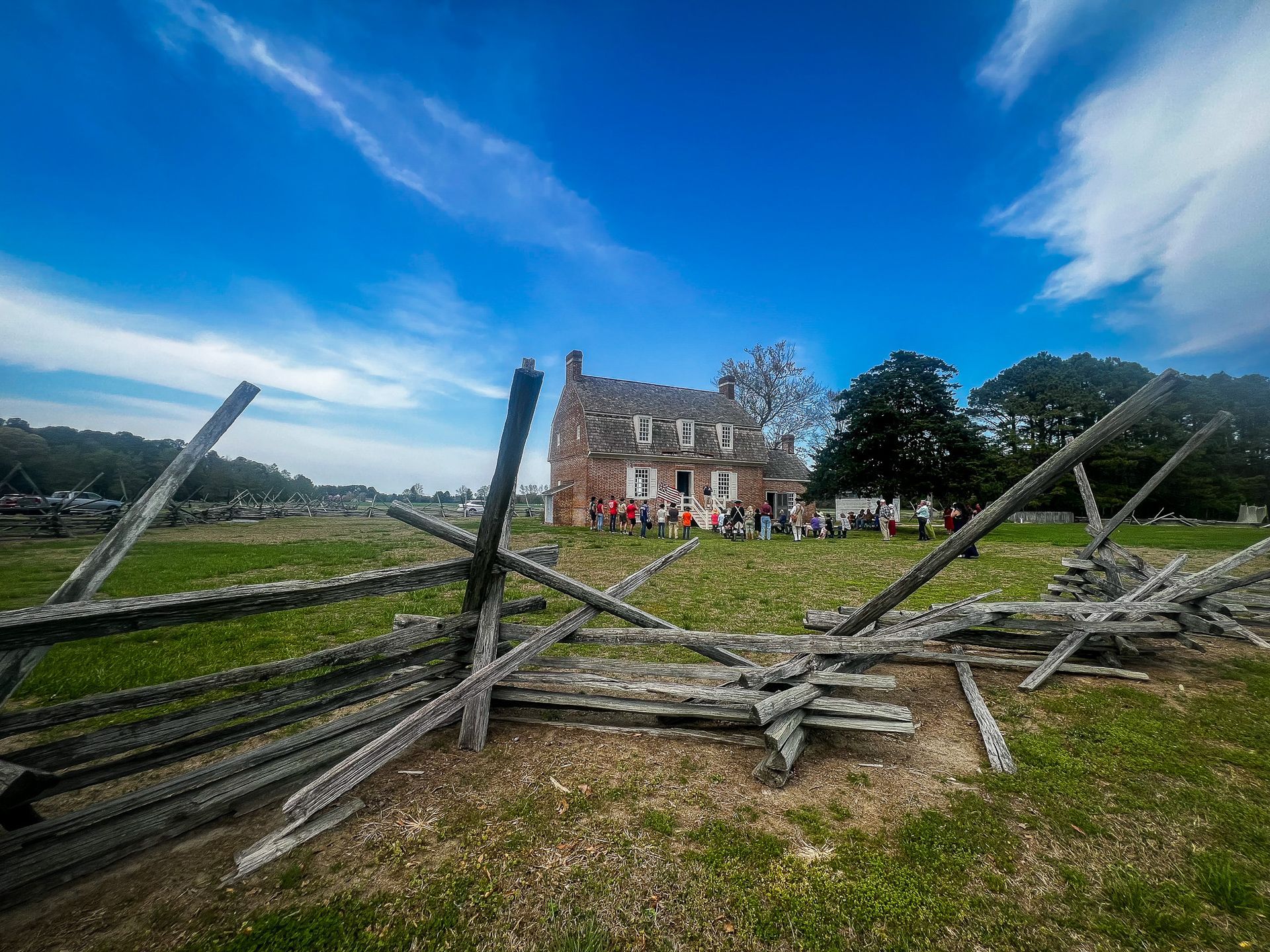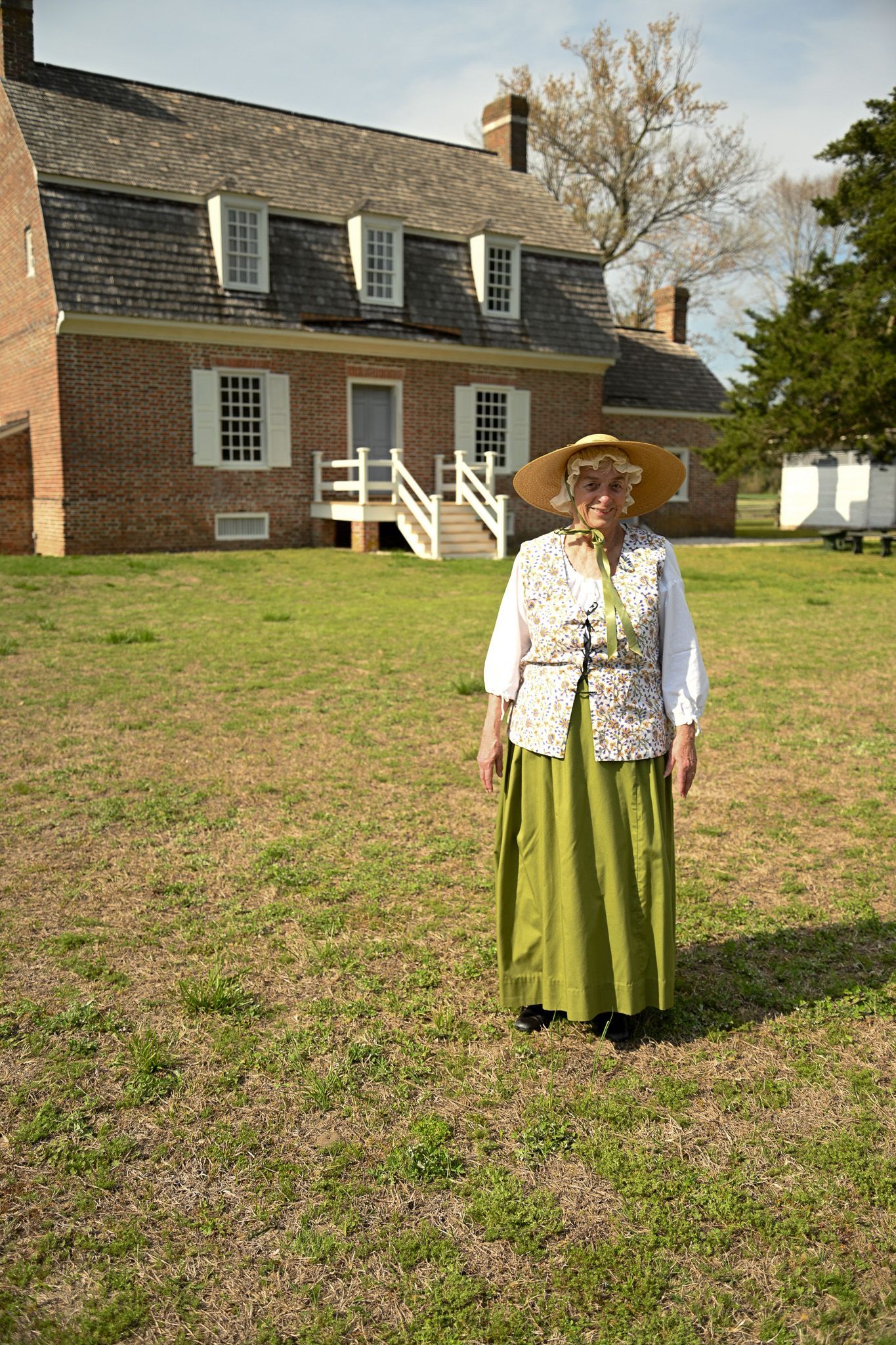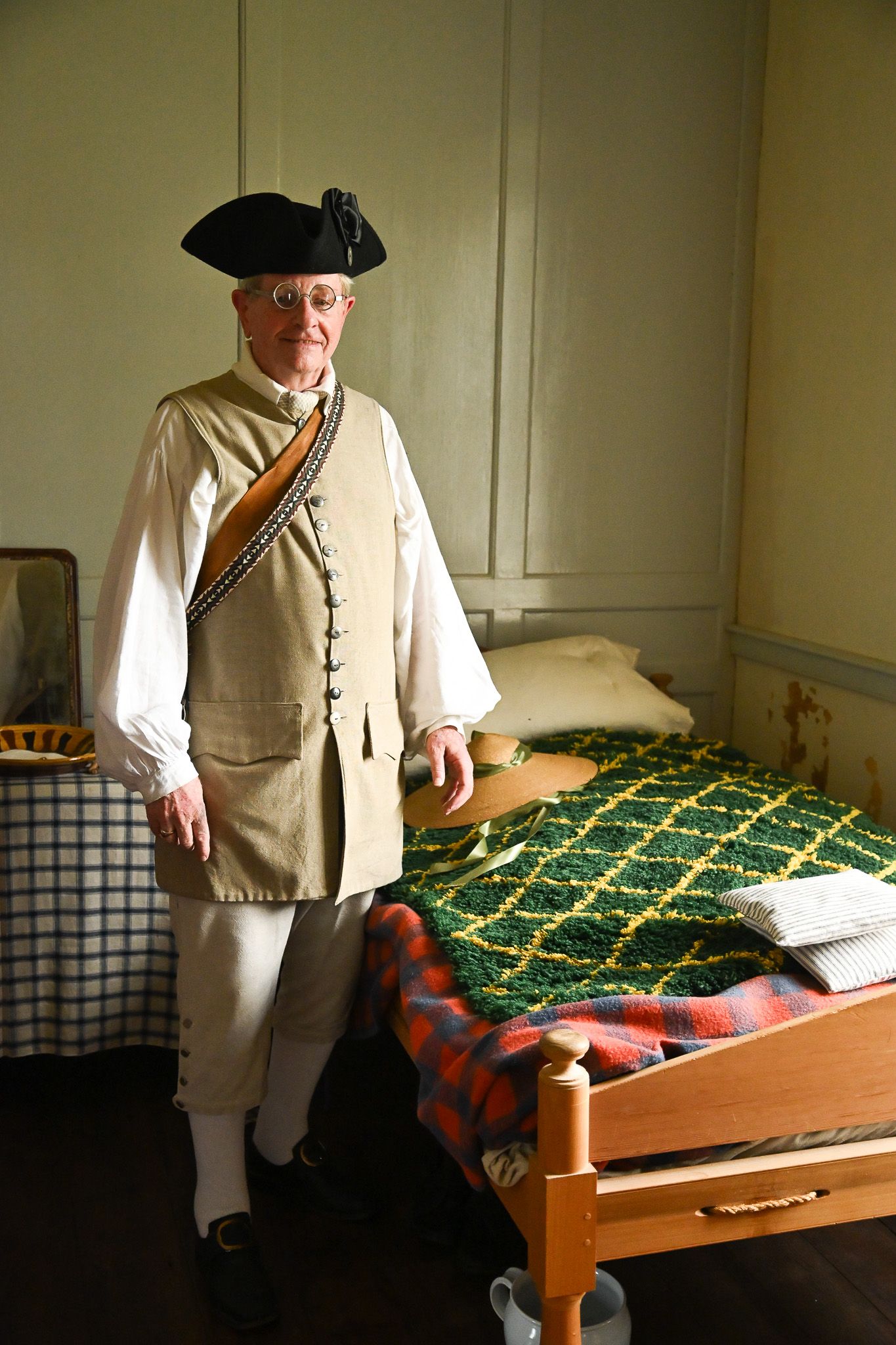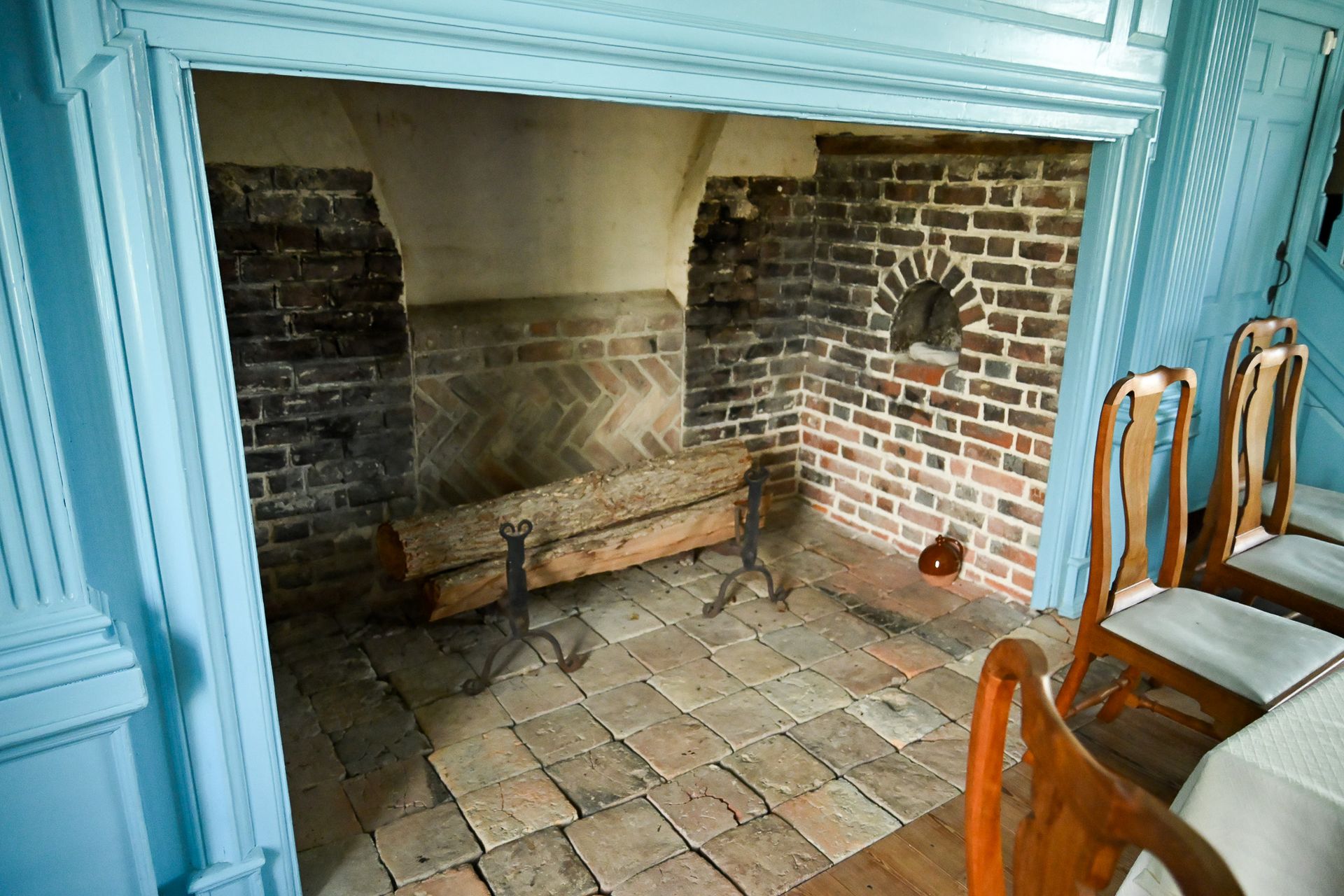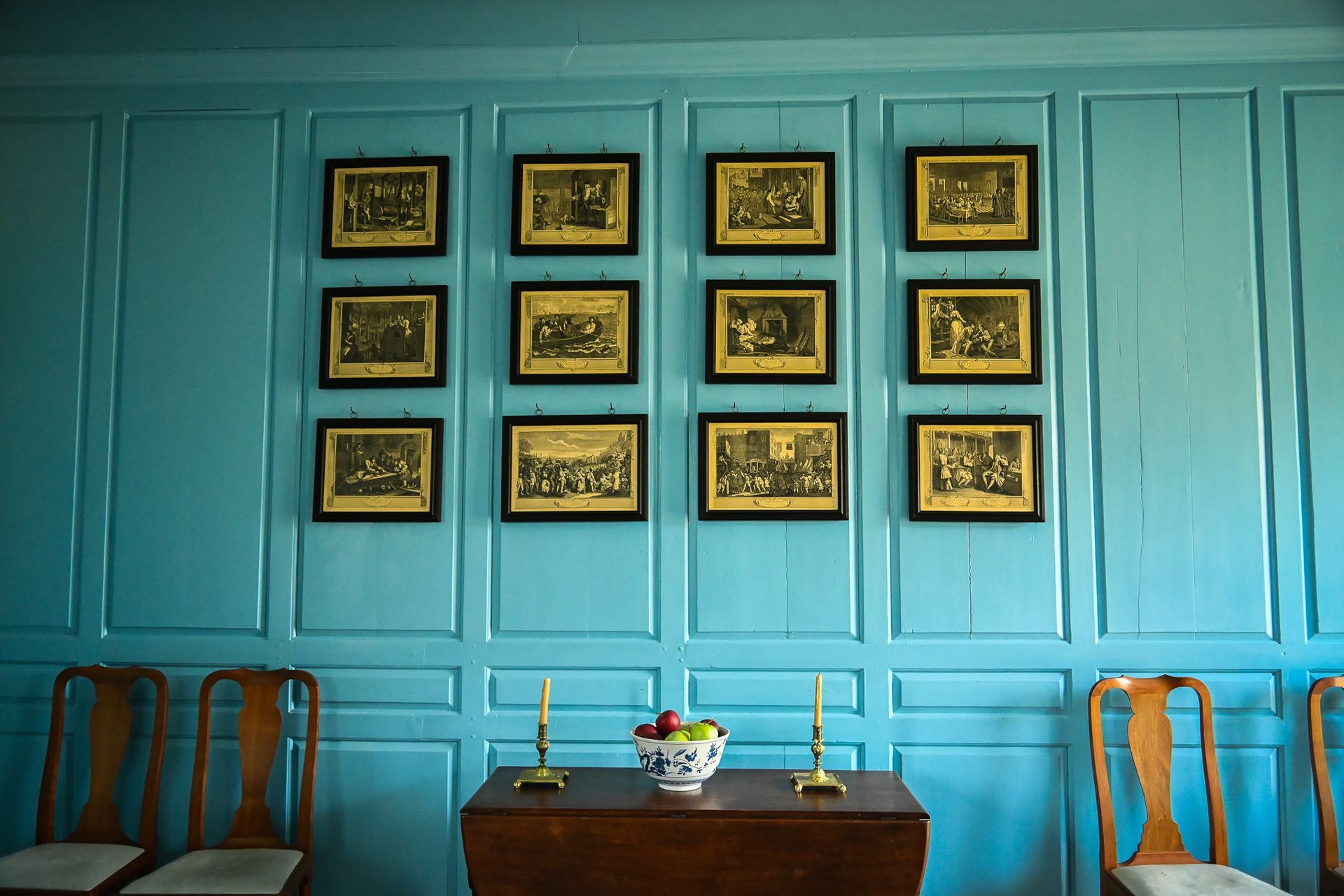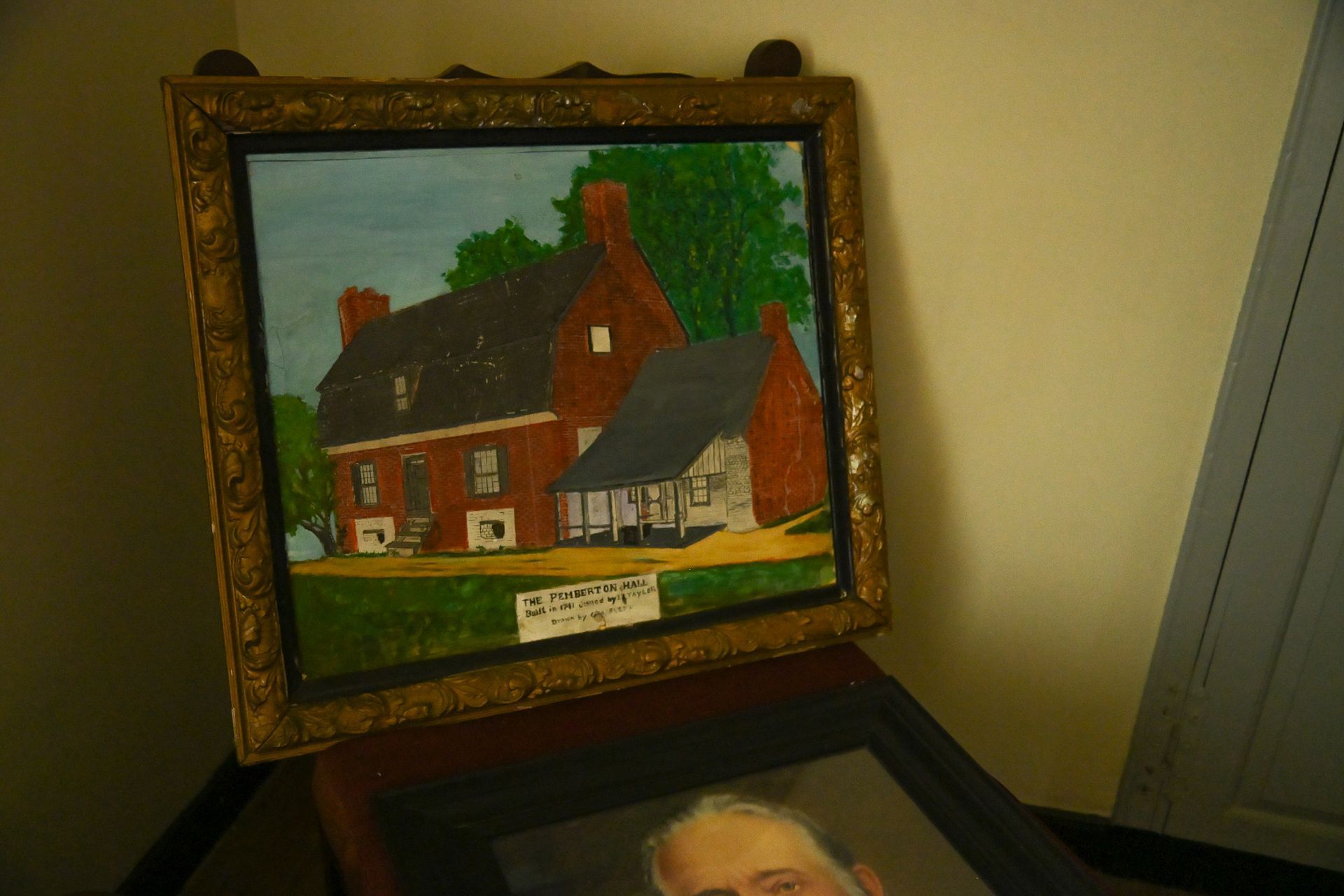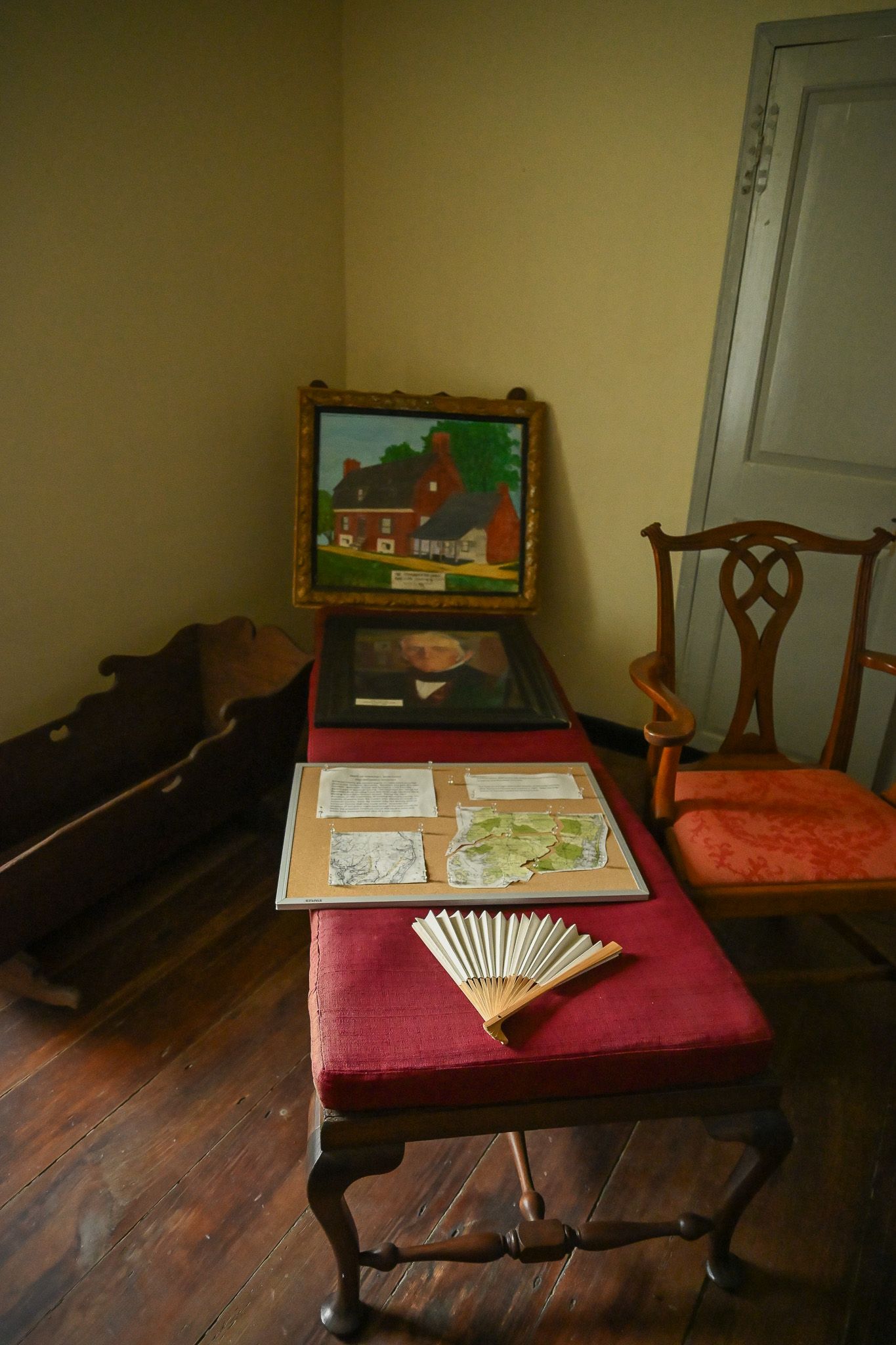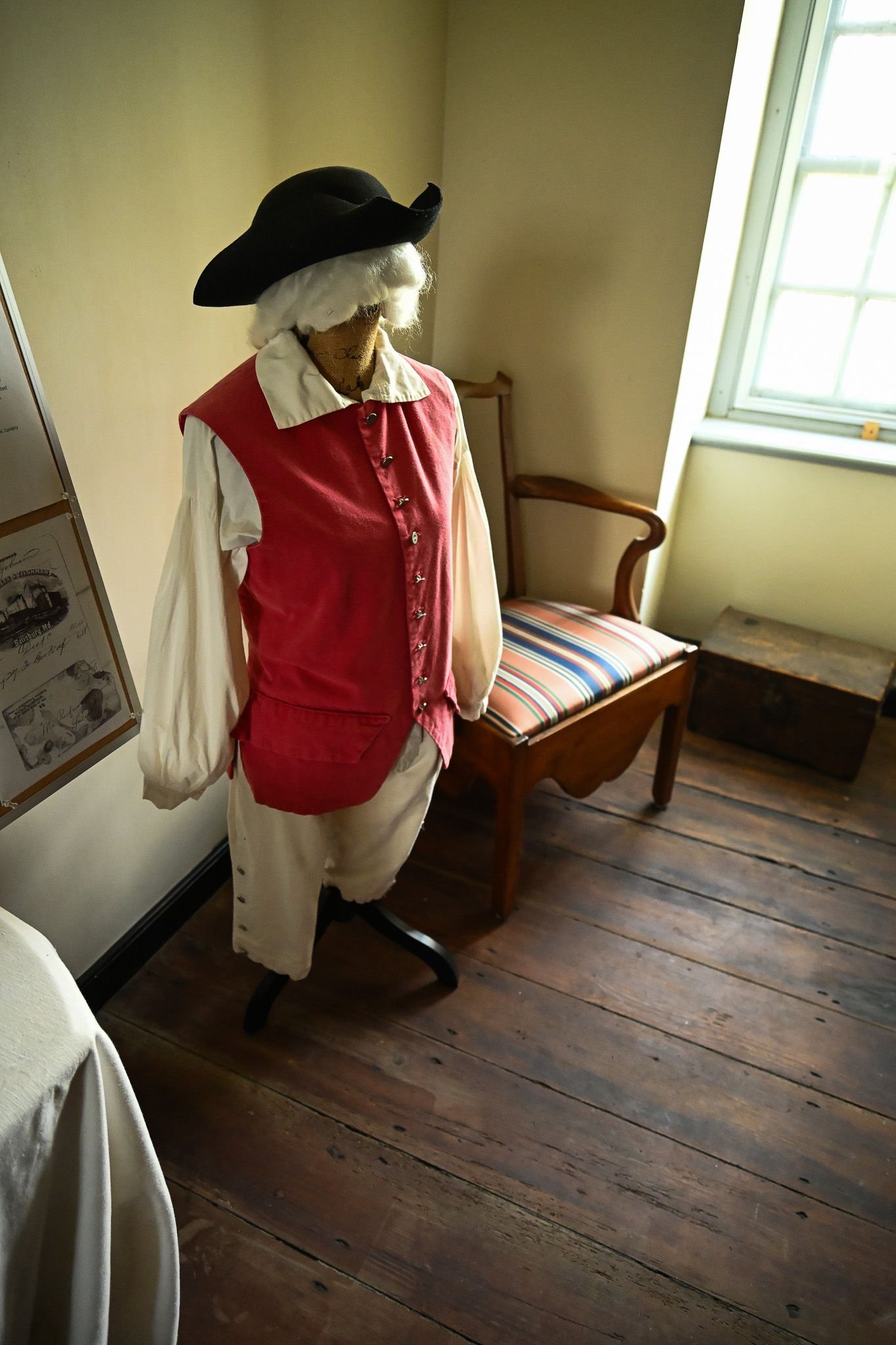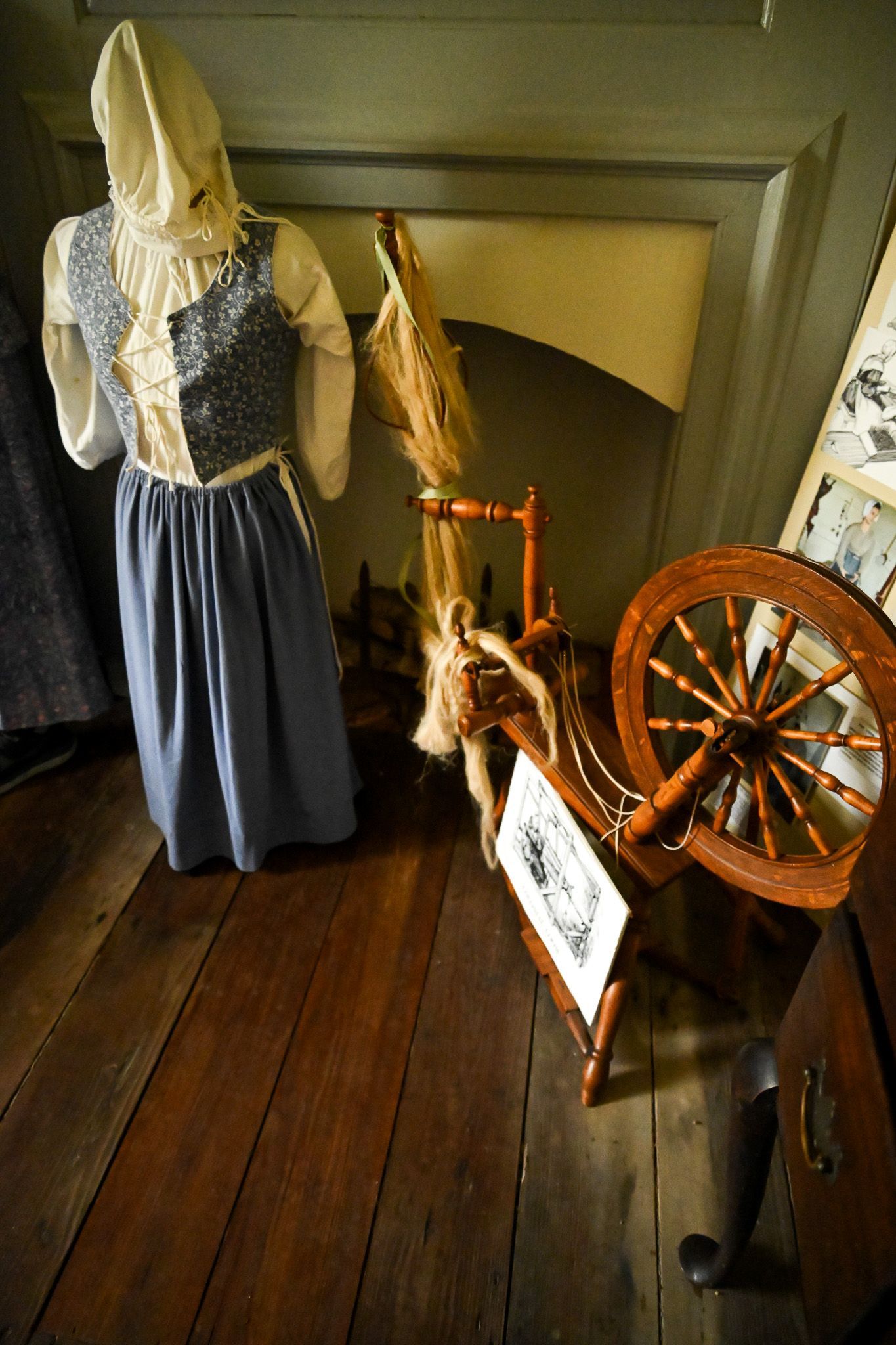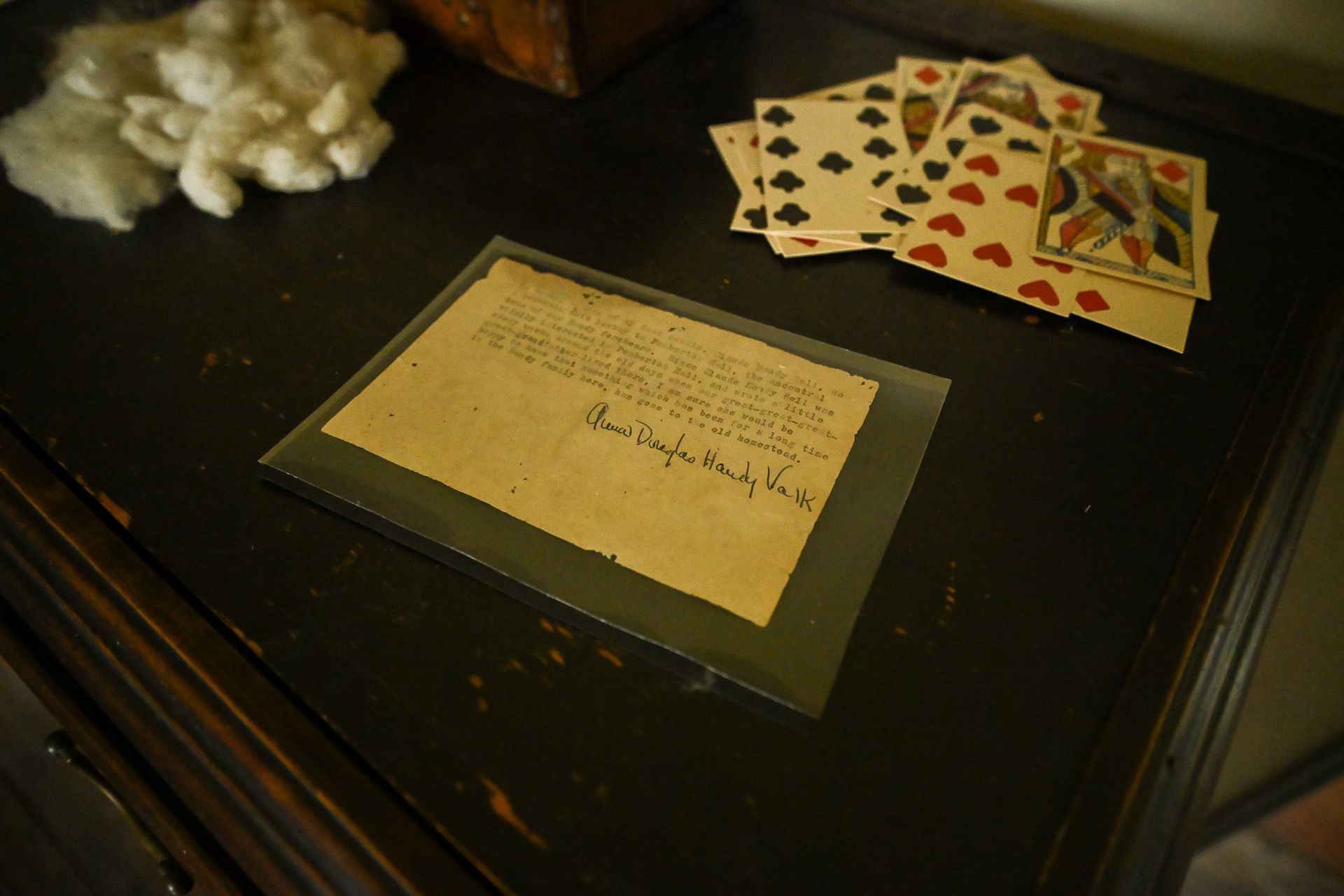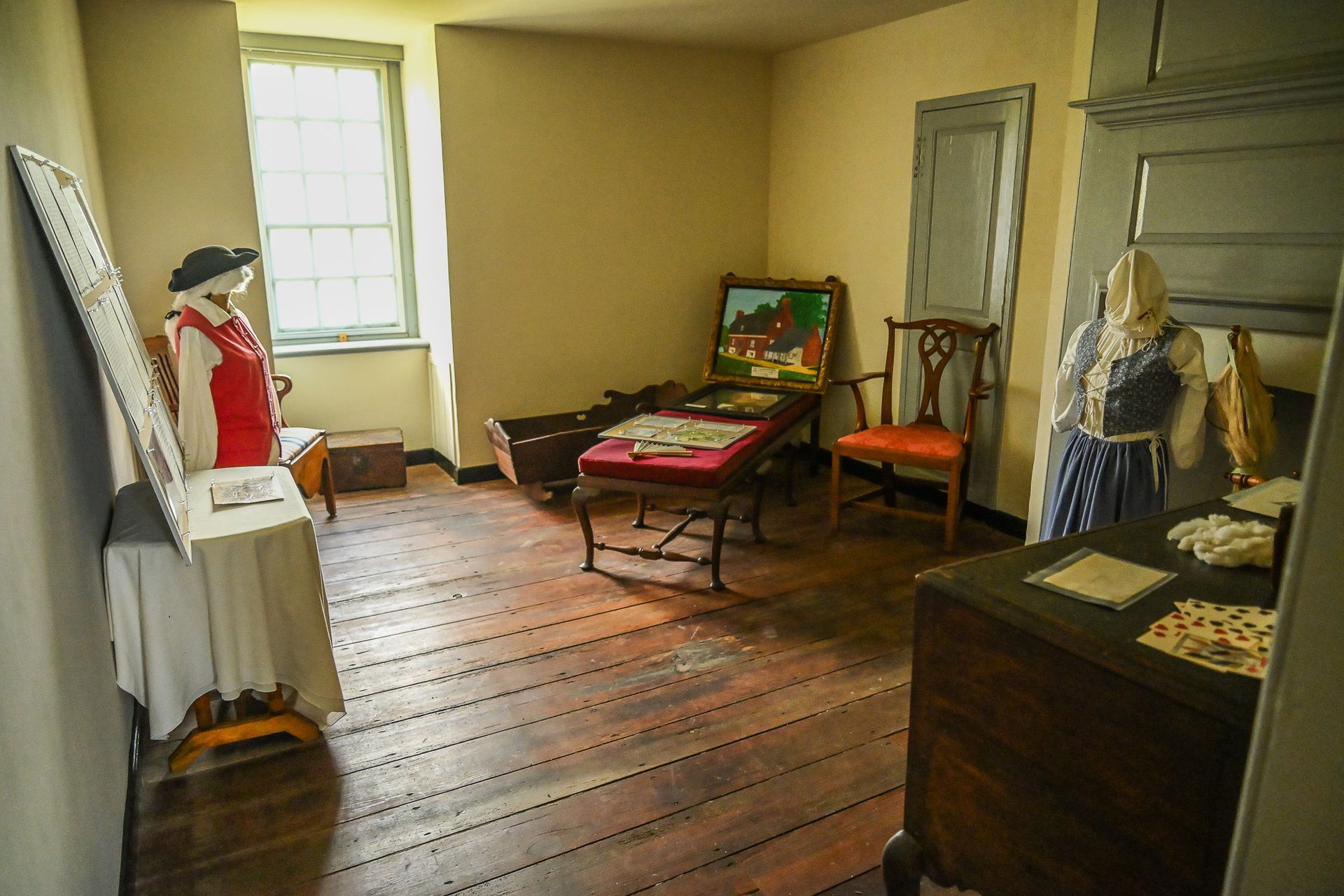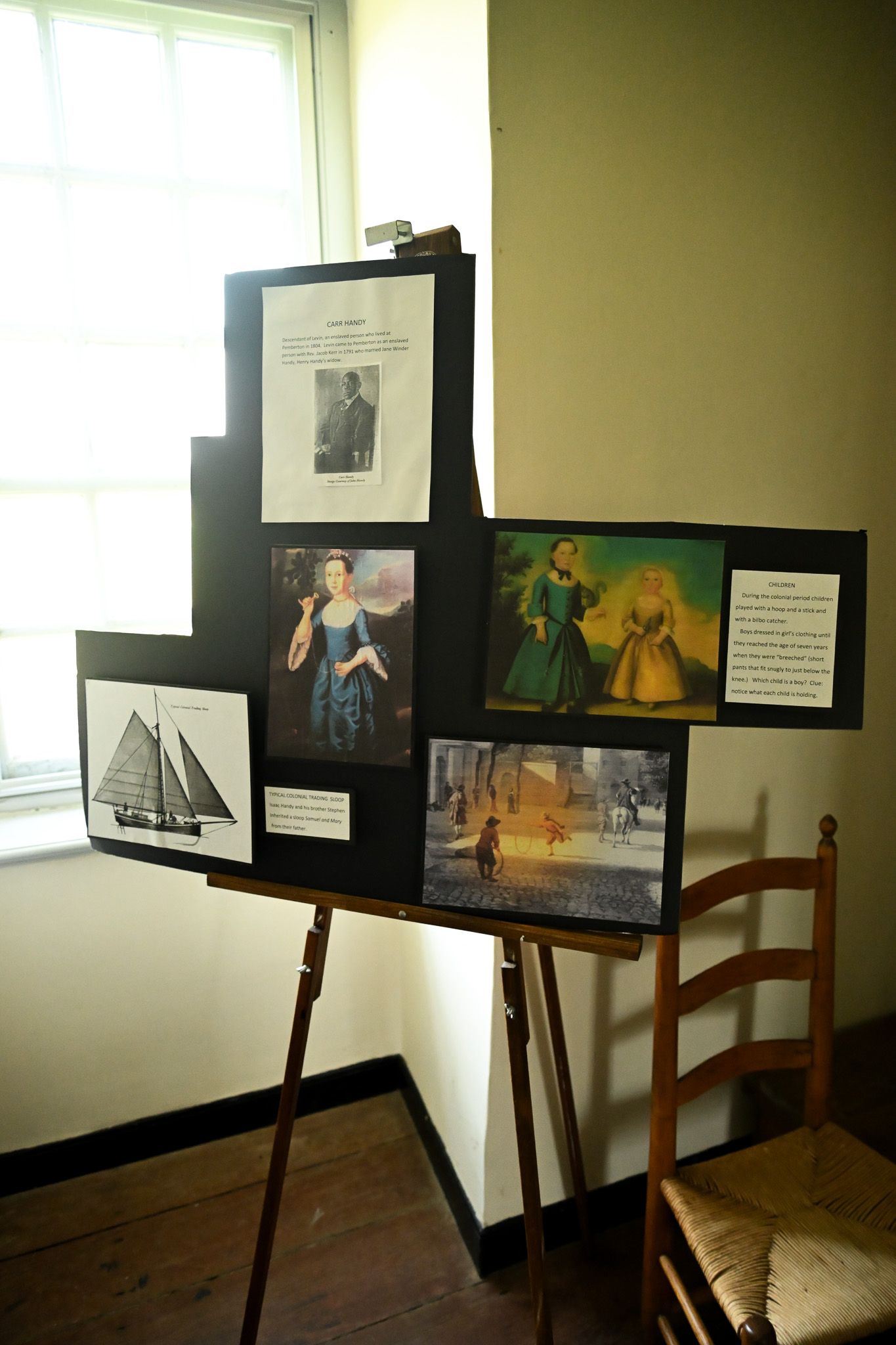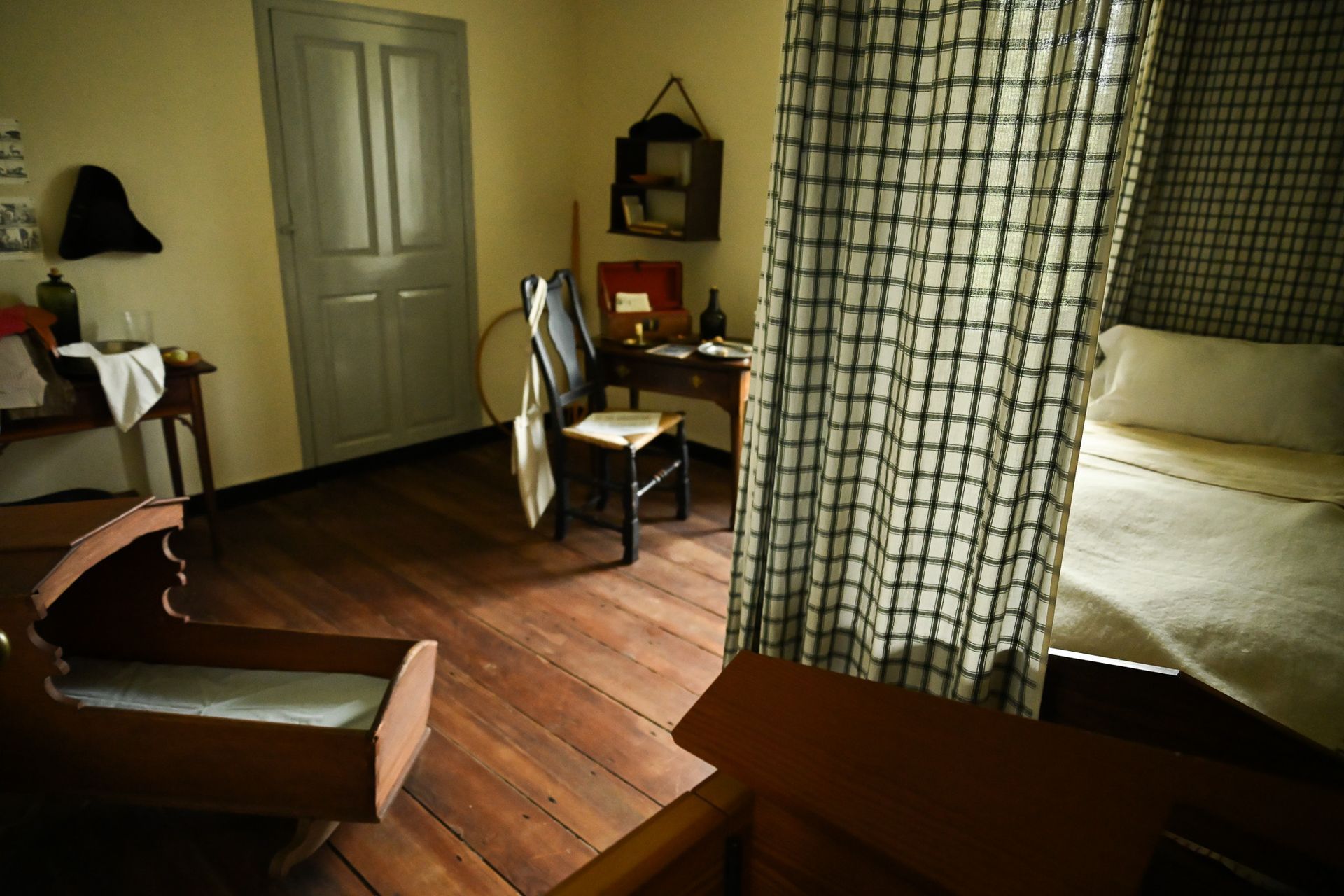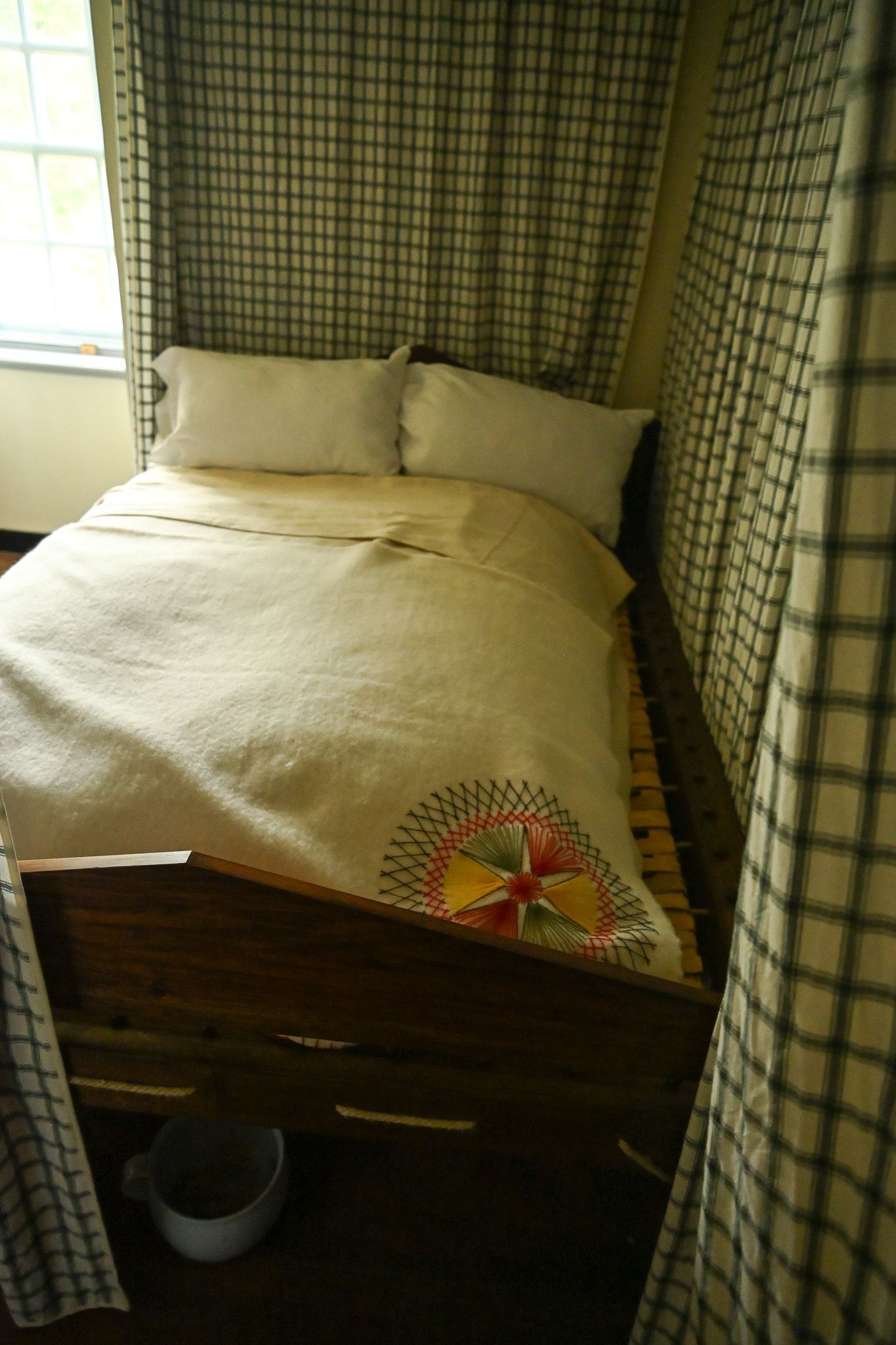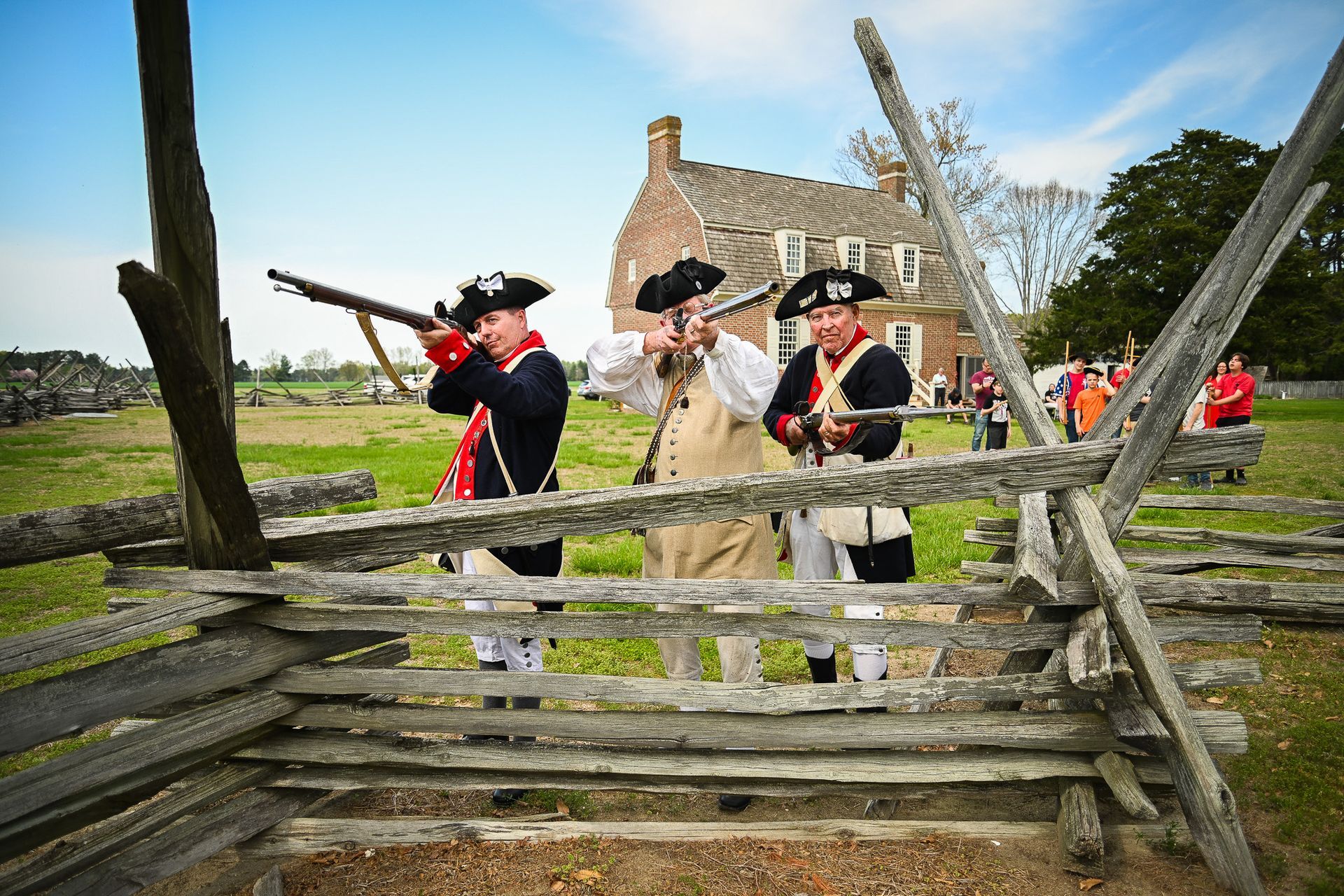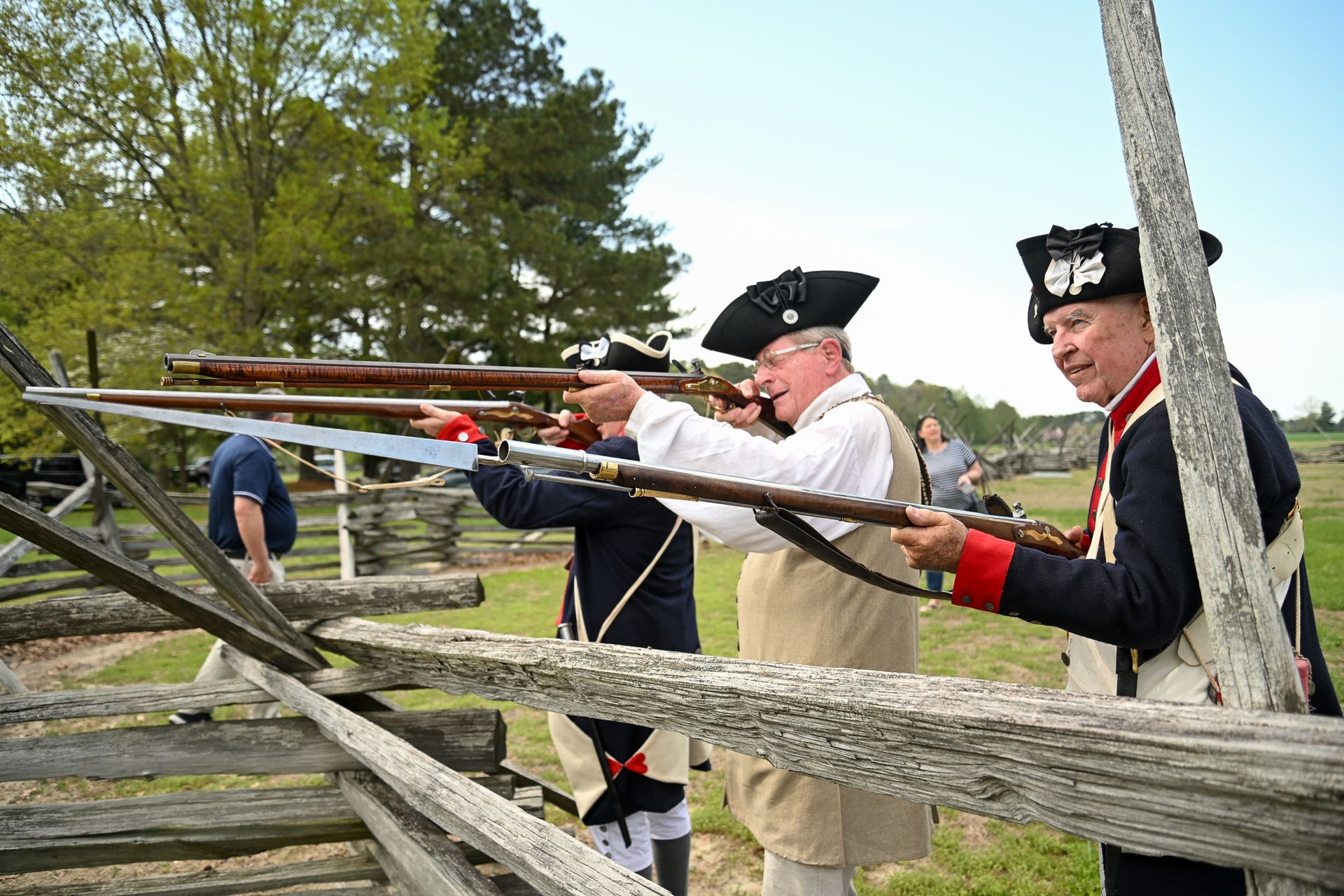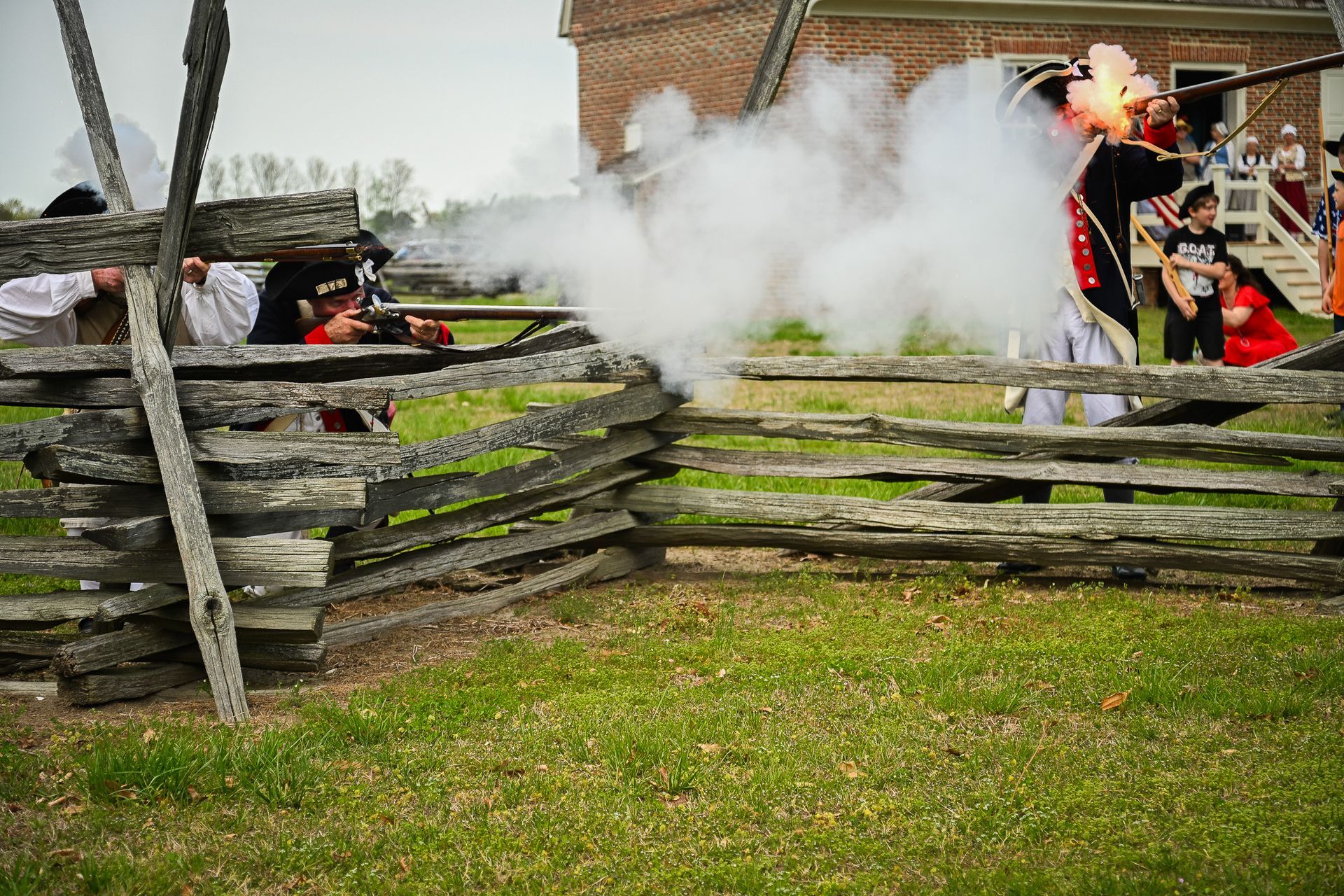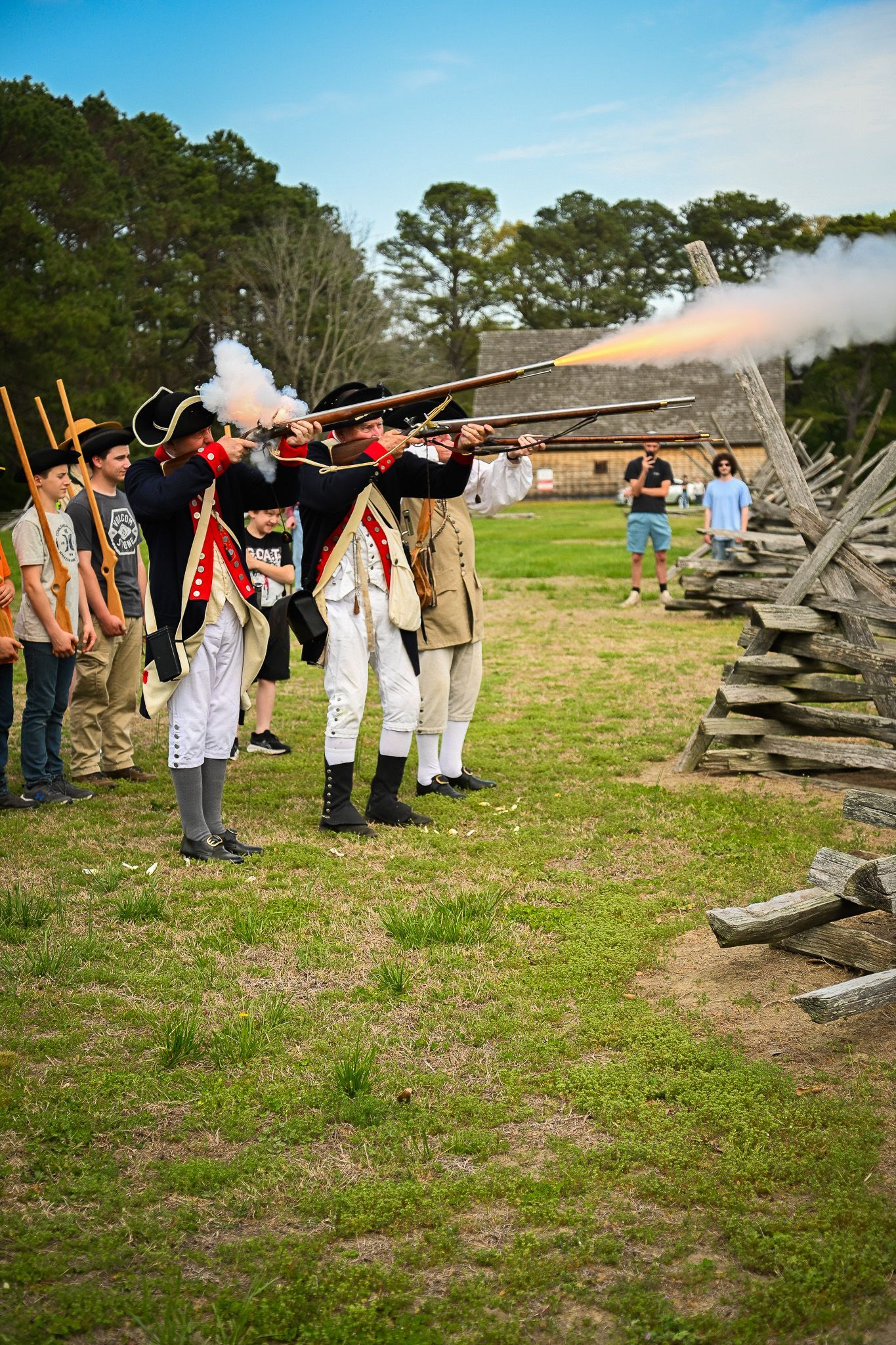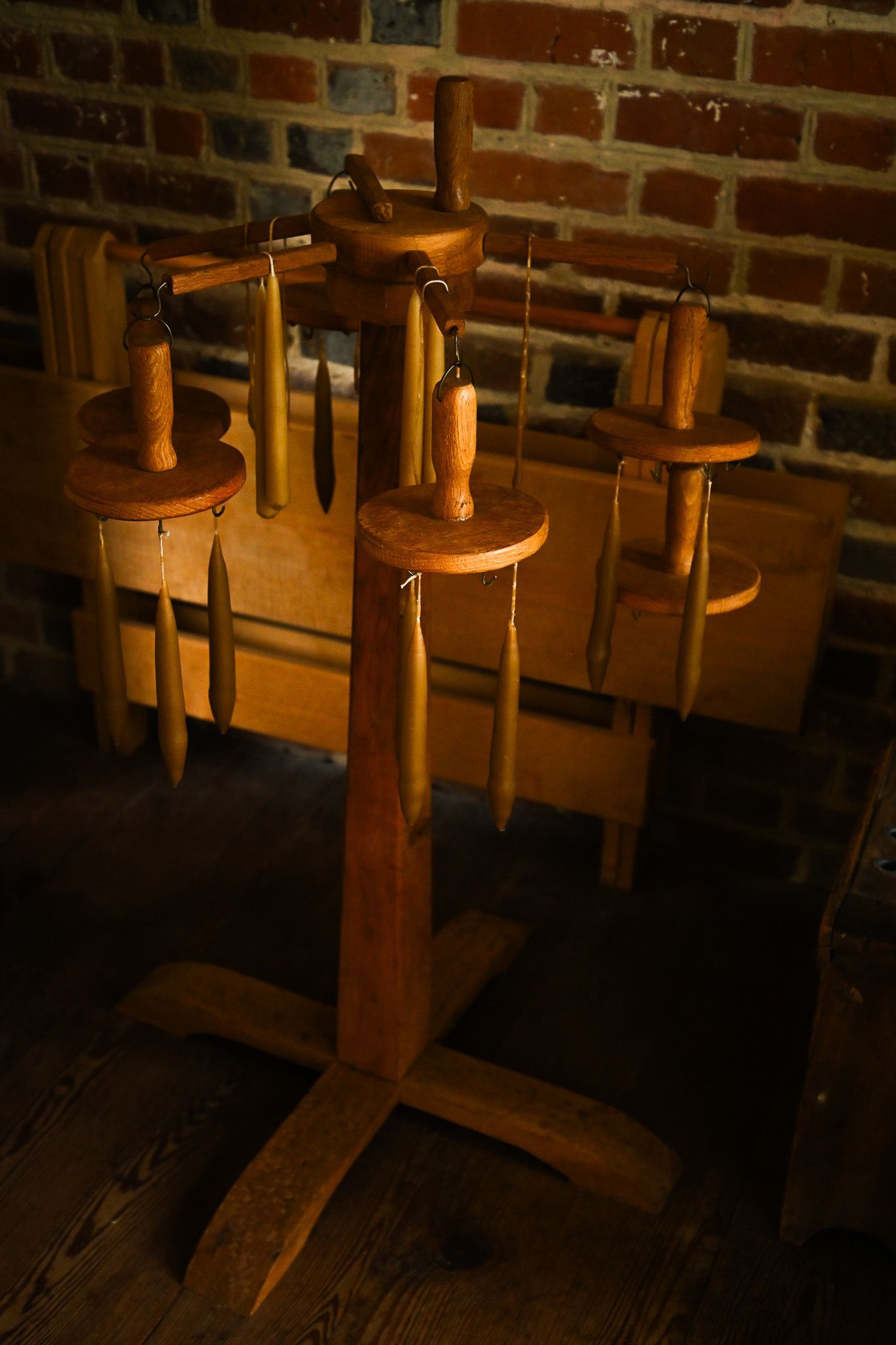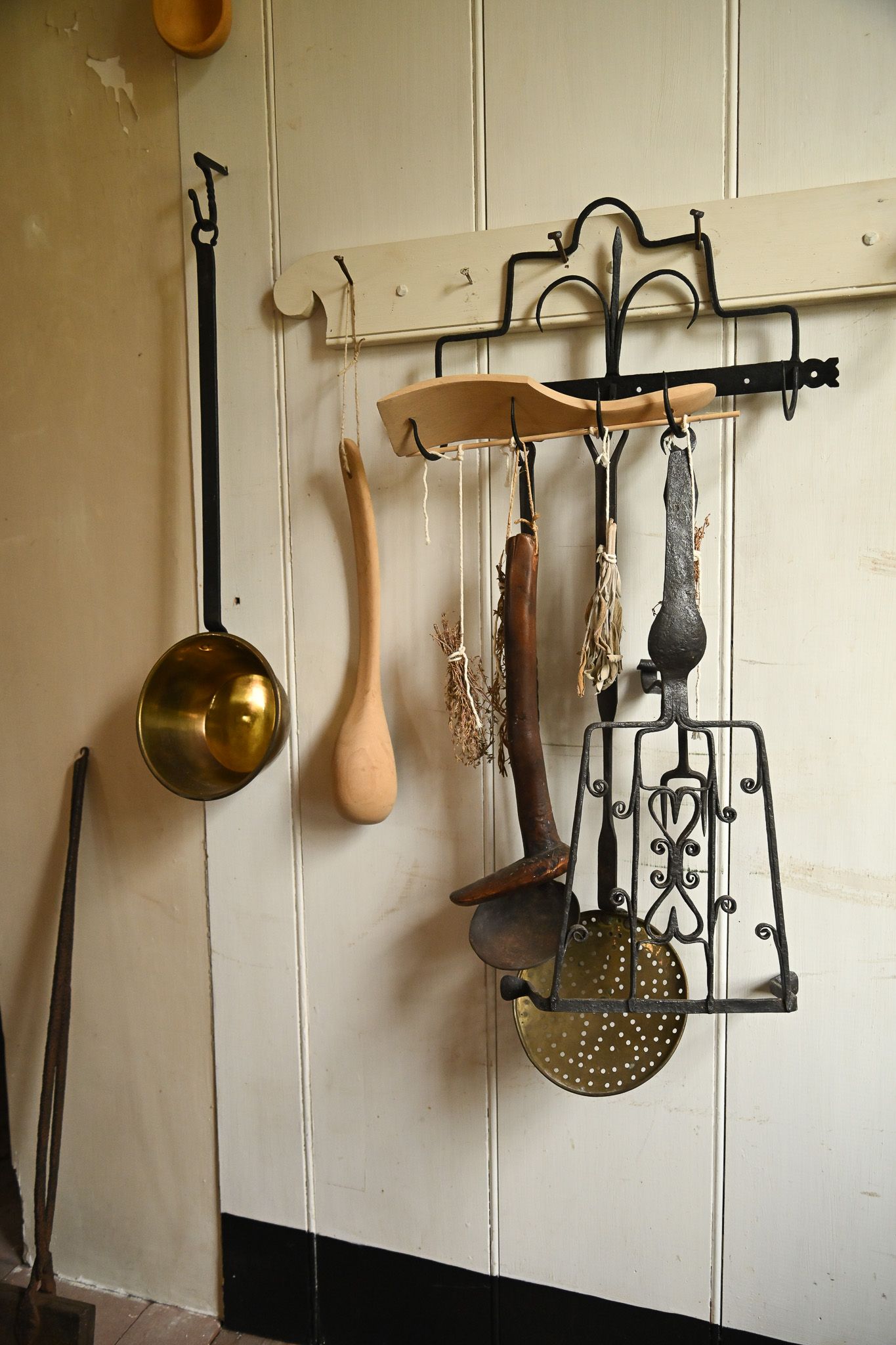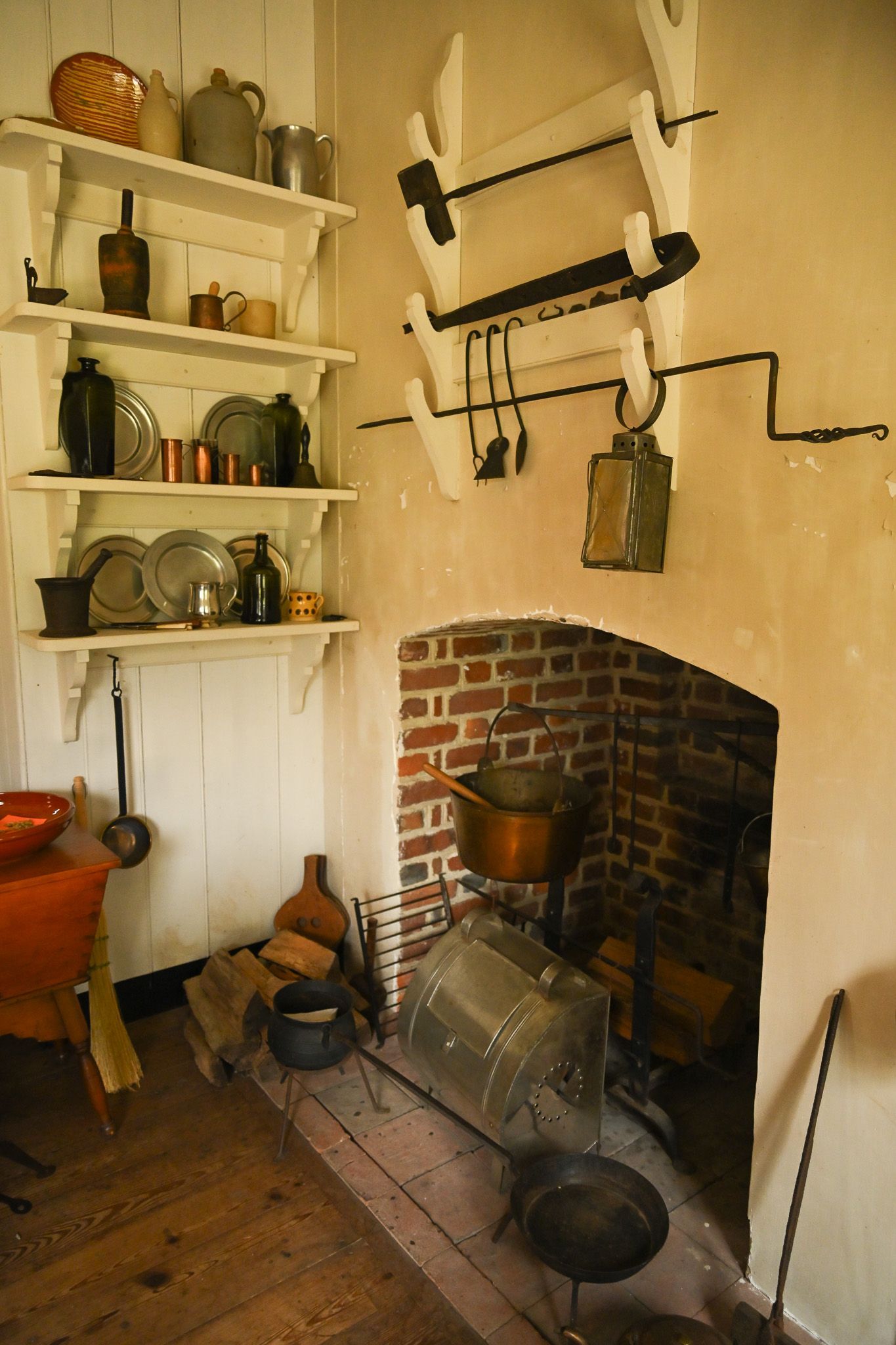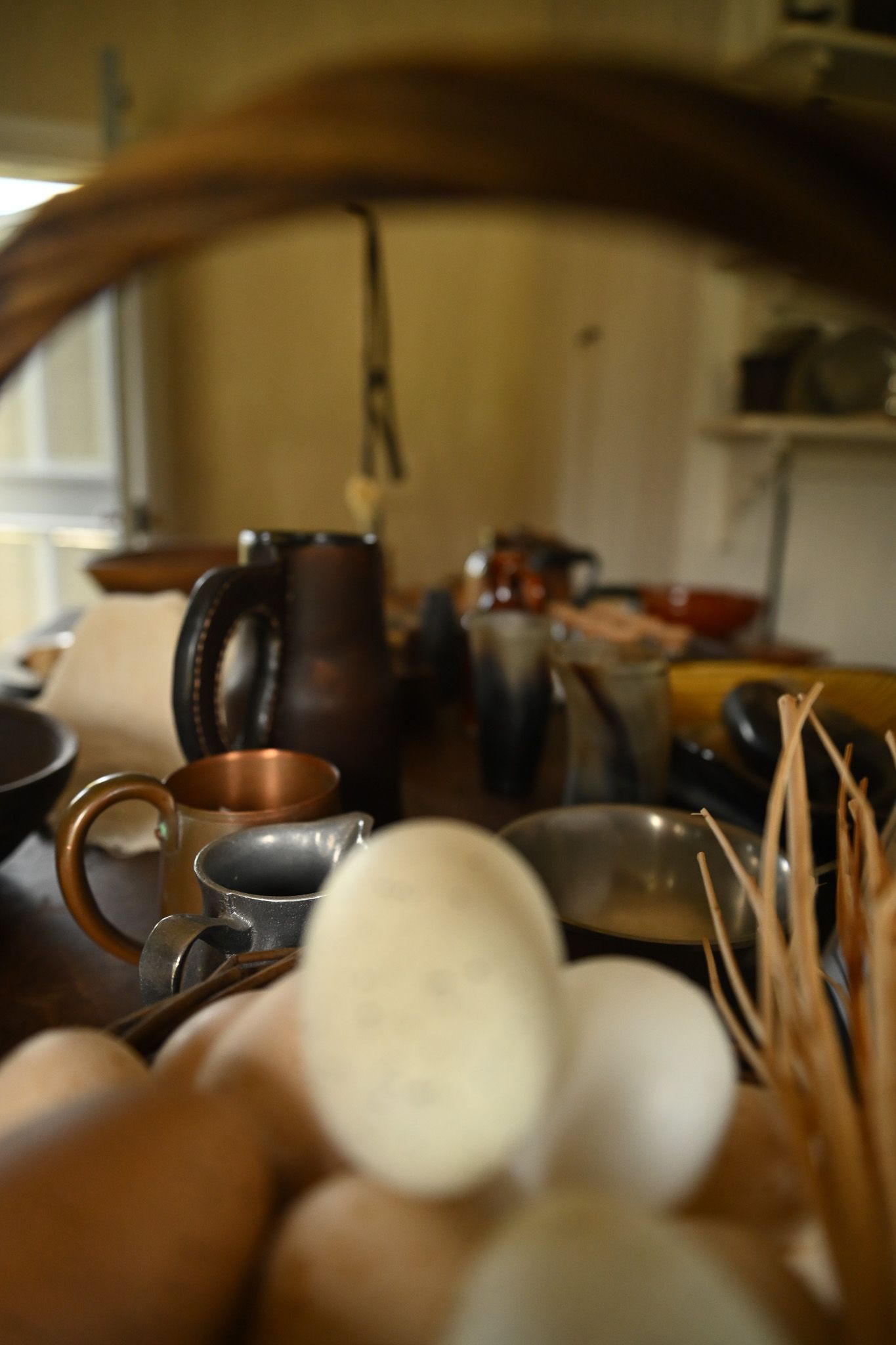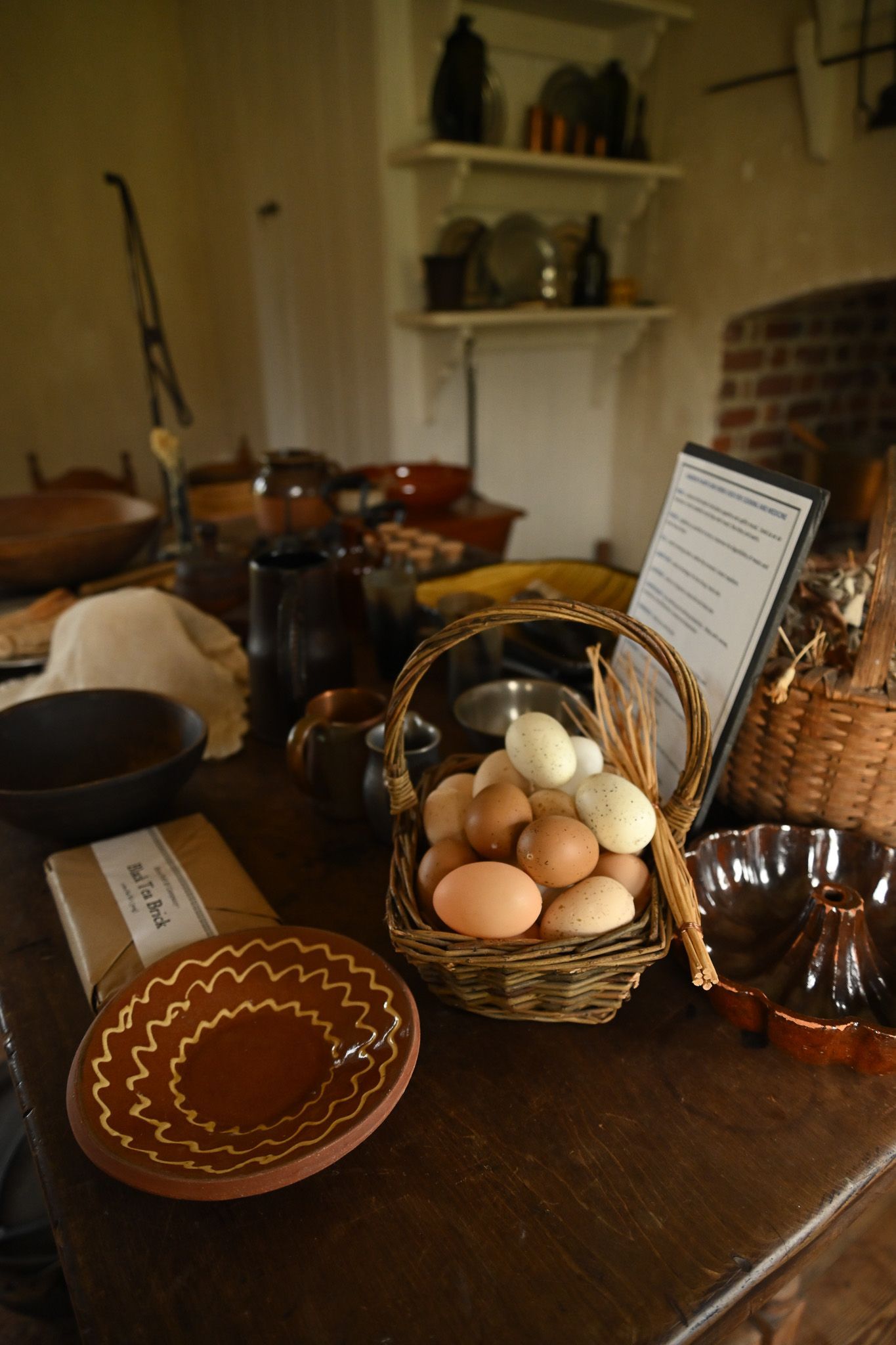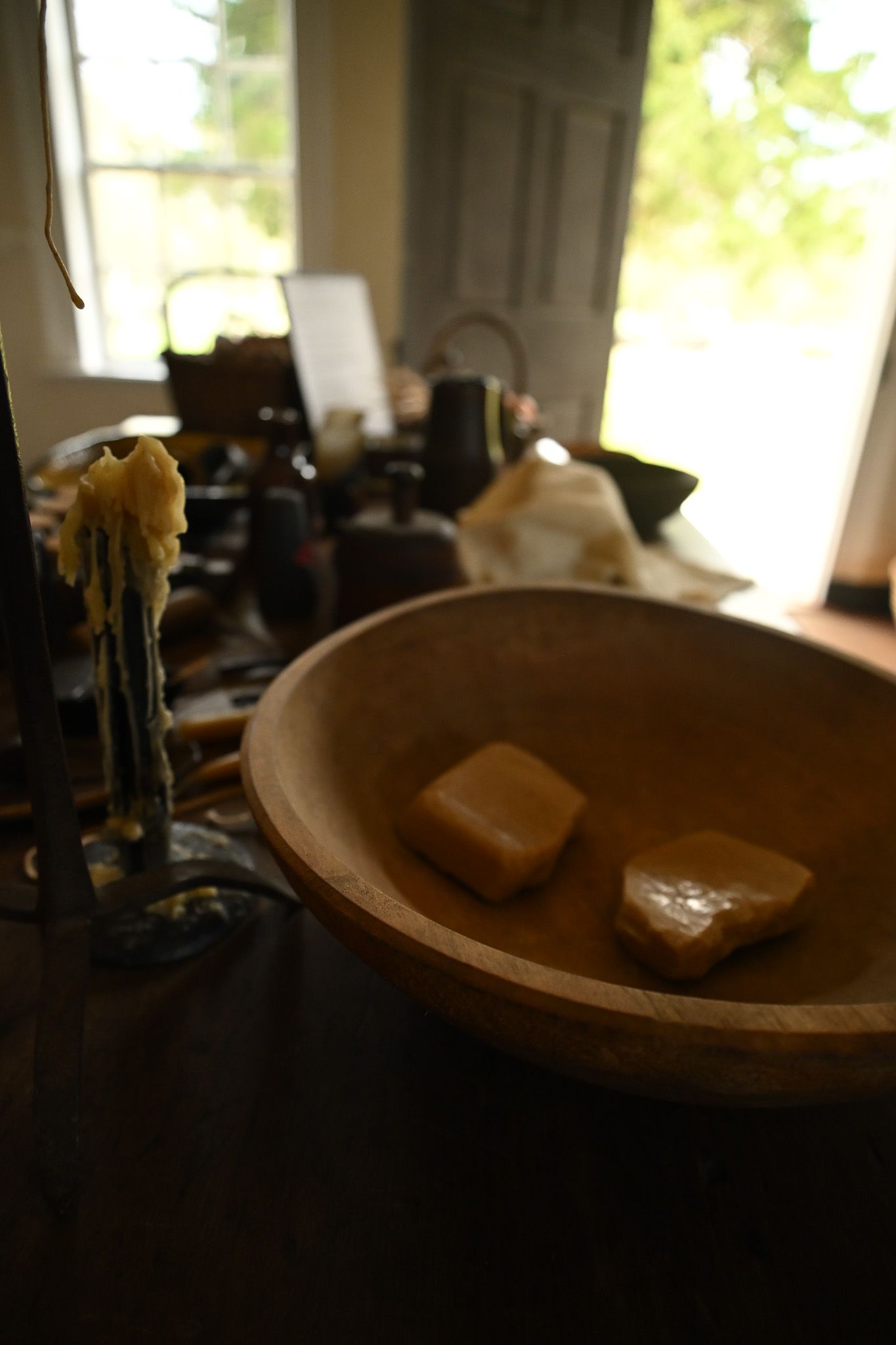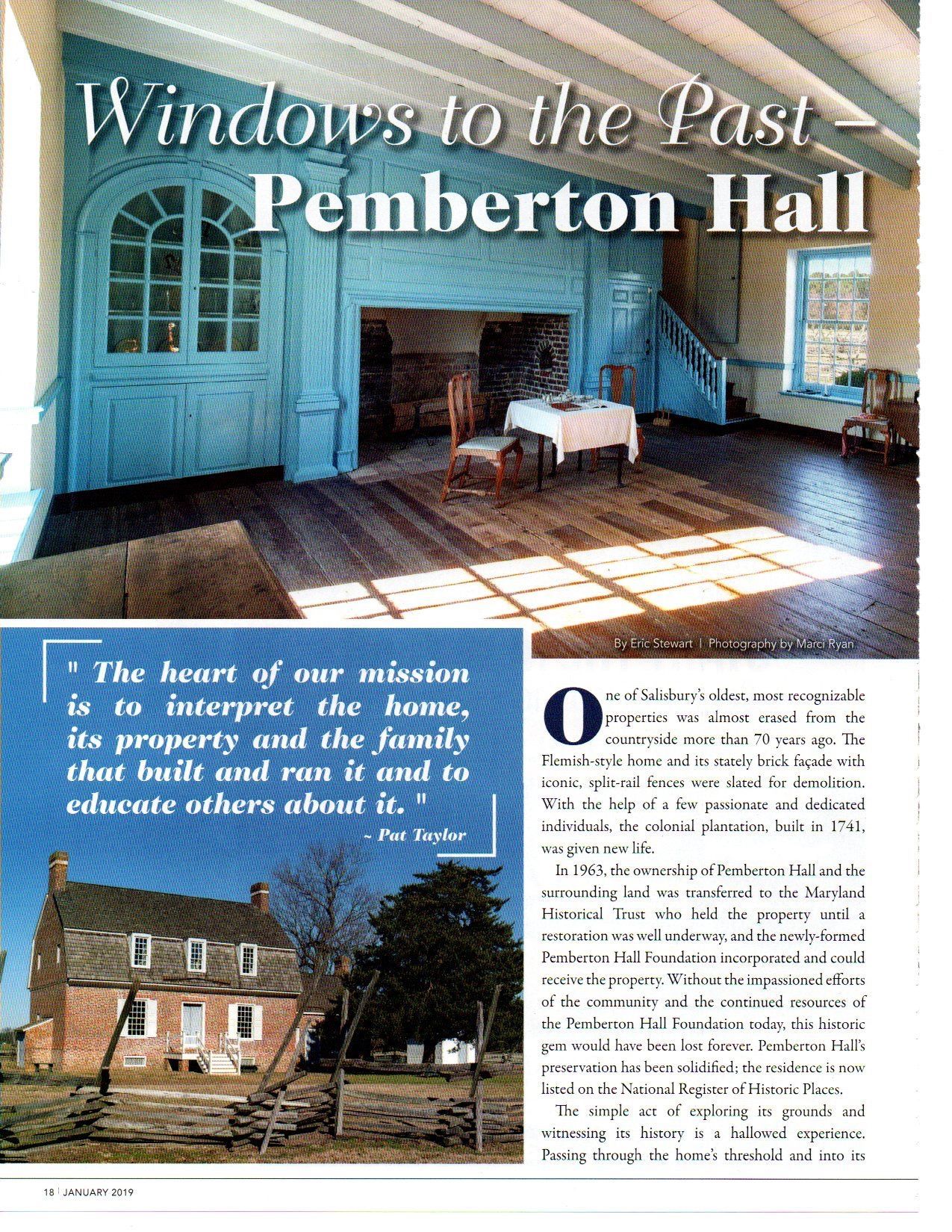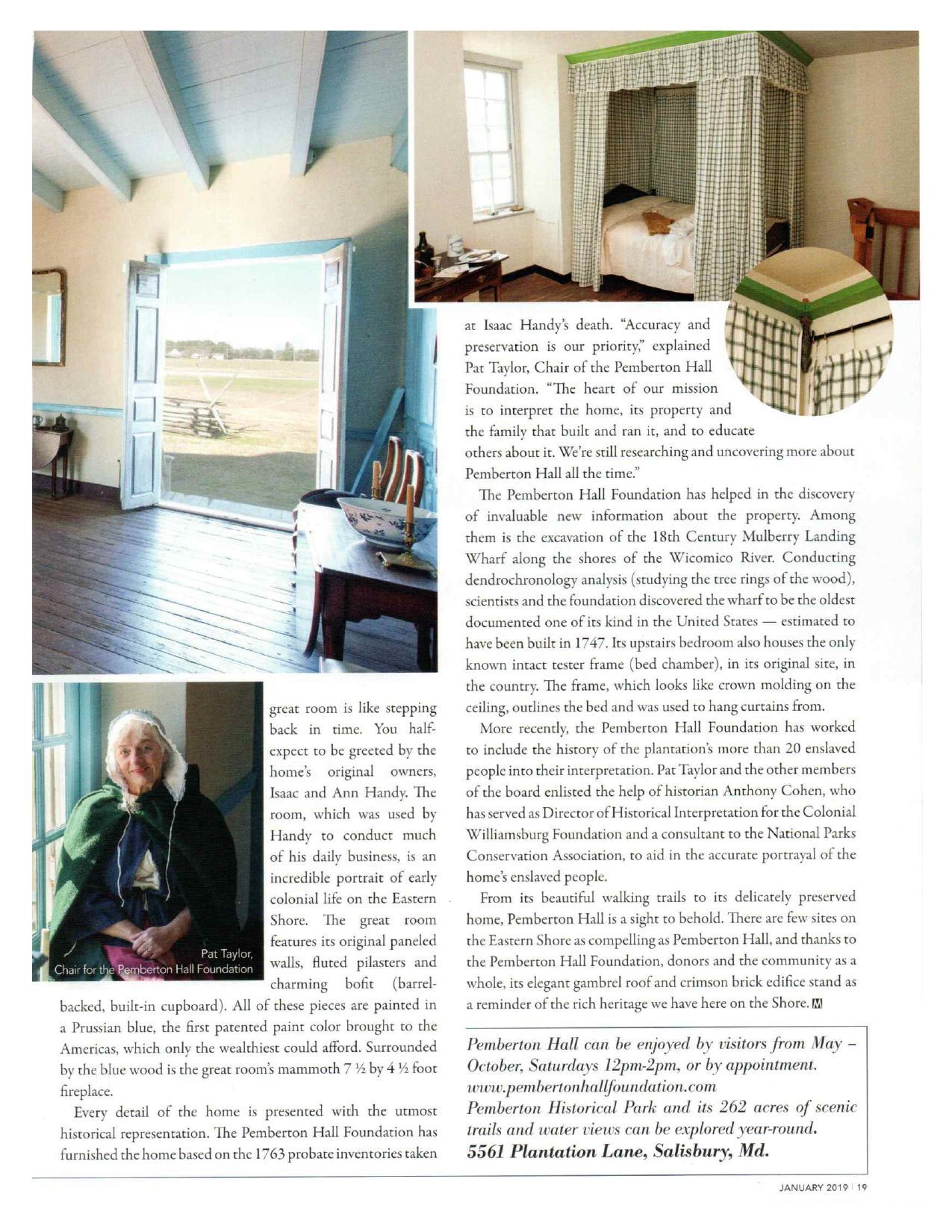The Hall is open the 1st & 3rd Sundays, May - October from 1-3 pm.
Private tours can be scheduled by calling 443-235-9616.
SINCE 1741
History of Pemberton Hall
Pemberton Hall is an outstanding example of eighteenth-century Eastern Shore regional architecture. This gambrel-roofed brick structure was built by Isaac and Anne Handy in 1741.
The building has been fully restored to its eighteenth-century appearance. The restoration is based on extensive and ongoing research. The attached 1786 kitchen was reconstructed on its original foundation. Furnishings are based on three eighteenth-century probate inventories taken on the plantation.
After the plantation house became derelict and threatened with destruction, the Pemberton Hall Foundation, Inc. was formed to restore and interpret this important vestige of our Chesapeake Bay regional heritage. The Hall and two acres are owned and maintained by the Foundation. Pemberton Hall is surrounded by 262-acre Pemberton Historical Park, which maintains three of the original plantation boundaries of 1750.
During the mid-seventeenth century, the Maryland colony expanded along the shores of the Chesapeake Bay and up the many rivers and inlets. Settlers discovered that Maryland's Lower Eastern Shore offered many advantages: level expanses of sandy soil favorable for growing tobacco, grain, and other crops; abundant streams to power mills; and protected inlets and coves suitable for boat landing from which plantation goods could be shipped to Britain and other foreign and domestic markets.
Pemberton Hall Plantation was created in this relatively undeveloped landscape. After purchasing the property from Joseph Pemberton in 1726, Isaac Handy developed the plantation. The site's wharf and rolling road become a hub for commerce in the region.
During the American Civil War, the Hall was the home of Allison Parsons, a Southern sympathizer. Despite the Federal troops encamped in Salisbury, Parsons insisted on firing a cannon upon the receipt of the news of each Confederate victory. After Parsons ignored orders to cease the firings, U.S. Army soldiers raided Pemberton Hall intent on silencing the cannon. Their efforts were thwarted by Parsons, who had buried the cannon before their arrival.
